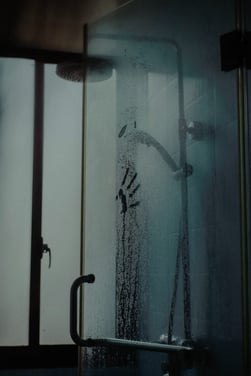Why Does the Hot Water Run Out So Fast?
A hot shower in the morning tends to be one of the primary ways people wake up, aside from a good cup or mug of coffee. However, few things are more irritating than to be two minutes into that hot shower and suddenly a blast of mediocre or cold water comes shooting out. Yet again, the water heater has given up the ghost and the rest of the shower is a hurried run to get cleaned off and out to a warm towel. Yes, you’re awake but now miserable and wondering, why does the hot water run out so fast?
Understanding the Physics Involved
First, a bit of a physics lesson is in order to understand why the hot water runs out so fast. What does it take to create a large amount of hot water? Water, in and of itself, is an incredible heatsink. It absorbs a tremendous amount of energy and heat before its own temperature is raised and becomes warmer. However, once water does get to that level, it holds onto that heat for a while unless more water is mixed in, which creates the heatsink effect again.
Normally, a home’s water source, and that in apartment, is preheated. It sits in a tank pre-staged to be drawn on when one wants hot water. As the draw occurs, the heater kicks in and continues to heat up the water more to compensate the demand for hot water. However, the tank also gets drawn down. To keep the system going, more water is pulled in from a feed, usually at pipe temperature which needs to be heated, and this takes more work. Eventually, the hot water available is drawn out and what remains goes lower and lower as the heat-raising process falls behind. Hot water is not fully possible until the system can recharge without losing warm water for a while.
Lots of Issues Contribute to Less Hot Water

An older water heater will also perform slower as well. Internal debris, aging equipment and temperature leakage all contribute to less efficiency. And, what many folks forget, a growing family sucks up more hot water as well. With everyone taking a hot shower in the morning, less is available per individual. And, sometimes simply not knowing how a water heater works can produce less hot water as well. If the temperature setting is at 120 degrees, bumping it up closer to 140 degrees on the dial can help. Just expect your gas bill to see an increase as well.
Going Beyond the Water Tank
All of the above is associated with a traditional water heater tank system. There are alternatives. A tankless water heater is an available technology, and a very effective on at that. One key advantage of a tankless water heater over a traditional water heater is the tremendous amount of energy reduction it takes to produce hot water. Instead of heating a sitting tank of water, which runs into the heatsink resistance, a tankless system runs the water through a hot element track as it flows. This faster heating approach heats up water far more rapidly because it takes less energy to heat a pipe full of water than an entire tank. The results are an increased on-demand capability to provide hot water longer, and a happier shower experience (or other needs for hot water on a prolonged basis).
Contact Pilot Plumbing
For more information on a tankless water heater, of for any plumbing problems or questions you have, contact Pilot Plumbing by calling (936) 788-6829 or fill out the contact form on our website. We will contact you as soon as possible.
Located in Conroe, TX, Pilot Plumbing proudly provides professional, commercial and residential plumbing services. Licensed and insured (MPL#38215), Pilot Plumbing has offered North Houston and the Greater Montgomery County area exceptional customer service for over 15 years. As a family-owned and operated company operating since 2005, we are dedicated to what we do with a determination toward excellent customer care and client satisfaction. Call us today and let us be your go-to plumbing company.
